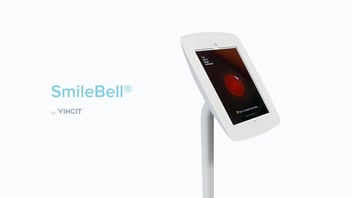The purpose of HIPAA is to prioritize the privacy of health records, and ensure that they remain secure and are not disclosed to unauthorized parties.
The Health Insurance Portability and Accountability Act of 1996, or HIPAA, outlines the lawful use and disclosure of protected health information, also known as PHI. Healthcare professionals must comply with HIPAA policies in order to protect their patients’ private information. The purpose of HIPAA is to prioritize the privacy of health records, and ensure that they remain secure and are not disclosed to unauthorized parties.
HIPAA applies to every aspect of a medical practice, including any healthcare app used to store or manage patients’ data. HIPAA compliance is extremely important, as failure to protect patients’ private information can result in compromising their privacy, as well as serious legal implications for health practitioners.
The basic reason that HIPAA is important to organizations is that it represents some fundamental changes in the way that healthcare data must be approached. When it passed, the stated intent of HIPAA was to provide continuing portability and accessibility of health coverage, and to stop healthcare fraud. HIPAA guidelines help to streamline administrative healthcare functions, improve efficiency in the healthcare industry, and ensure protected health information can be shared securely between healthcare providers. This is especially important to keep in mind as we move toward a more digital future.
The consequences of HIPAA violations can range from monetary fines to criminal charges that can result in jail time. The financial penalties for HIPAA noncompliance are based on the level of negligence, and can range from $100 to $50,000 per violation (or per record), with a maximum penalty of $1.5 million per year for violations of an identical provision.
The fines and charges are broken down into two major categories: “Reasonable Cause” and “Willful Neglect.” “Reasonable Cause” fines range from $100 to $50,000 per incident, and do not involve any jail time. On the other hand, “Willful Neglect” fines range from $10,000 to $50,000 for each incident, and can result in criminal charges.
A typical application development project is already complex enough. In every industry, app development teams need to balance understanding business goals, creating a strong consumer facing experience, and ensuring what they have built is a scalable solution. HIPAA compliance adds one more complex consideration, but it is essential.
When it comes to developing healthcare apps, businesses need to understand that HIPAA compliance requires a complex and delicate balance to design systems that keep sensitive data secure. Development teams must be able to build an architectural system that can ensure the safety of personal health information.
For those who have not engaged in the industry before, we highly advise bringing on developers and consultants with expertise. Even for companies with vast development experience, HIPAA compliance brings app development into an entirely different world.
Vincit has worked closely with HIPAA compliance on our projects, and can offer expertise and insight into the development of your healthcare applications.

Mikko Salokangas,
Head of Development


